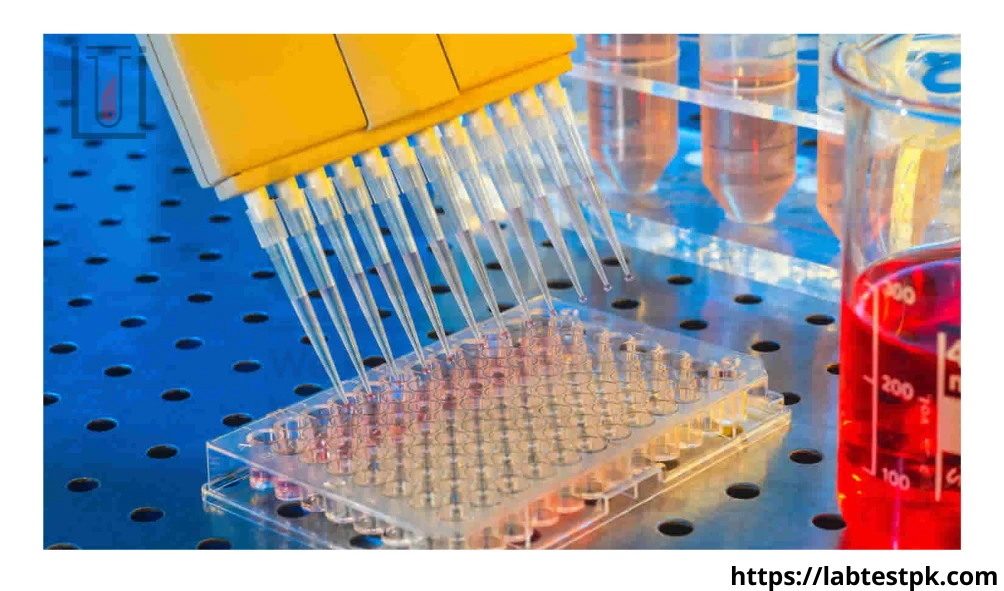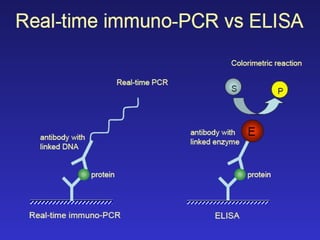Difference Between Elisa and PCR, (ELISA) and Polymerase Chain Reaction (PCR) are both laboratory techniques used in medical diagnostics, but they serve different purposes and operate on different principles. Here are the key differences between ELISA and PCR tests:
Purpose
1) ELISA(Enzyme – Linked Immunosorbant Assay):
- ELISA is primarily used to detect the presence of specific antibodies or antigens in a sample.
- It is commonly used in the diagnosis of various diseases, including infectious diseases like HIV, hepatitis, and autoimmune disorders.
Target Molecule:
1) ELISA:
ELISA detects proteins (antibodies or antigens ) in a sample.
2) PCR:
PCR detects and amplifies nucleic acids, either DNA or RNA, in a sample.
Method
- ELISA involves the use of specific antibodies or antigens that are linked to enzymes. when these antibodies or antigens bind to their corresponding targets in the sample, an enzymatic reaction produces a detectable signal, such as a color change.
Sensitivity:
- ELISA is generally considered less sensitive than PCR.
- It can detect the presence of antibodies or antigens but may not be as sensitive in detecting low levels of these molecules.
Applications
- ELISA is commonly used in serology to detect antibodies in response to infection or for the presence of specific antigens.
- It is also used in allergy testing and autoimmune disease diagnosis.
Time Required
ELISA tests usually take several hours to complete.
PCR(Polymerase Chain Reaction)
(ELISA) and Polymerase Chain Reaction (PCR) are both laboratory techniques used in medical diagnostics, but they serve different purposes and operate on different principles. Here are the key differences between ELISA and PCR tests:
Purpose
1)PCR (Polymerase Chain Reaction)
- PCR is used to amplify and detect specific DNA or RNA sequences in a sample.
- It is commonly used for the detection of pathogen genetic testing and research purposes.
Target Molecule
PCR detects and amplifies nucleic acids, either DNA or RNA, in a sample.
Method
- PCR involves the amplification of DNA or RNA through a series of temperature-controlled cycles, It uses specific primers that target the DNA or RNA sequences of interest.
- As the cycles progress, the targeted sequences are exponentially replicated, making them easier to detect.
Sensitivity
- PCR is highly sensitive and can detect very low quantities of DNA or RNA.
- It is often used for the early detection of infectious agents or genetic mutations.
Application
PCR is widely used in molecular biology and genetics research, as well as clinical diagnosis for infectious diseases, genetic disorders, and paternity testing.
Time Required
PCR tests can be completed in a few hours, but some applications, such as quantitative PCR(qPCR), may take longer.




[…] Biology MCQs, These questions cover a wide range of topics in molecular biology and include key concepts such as DNA replication, transcription, translation, and gene […]